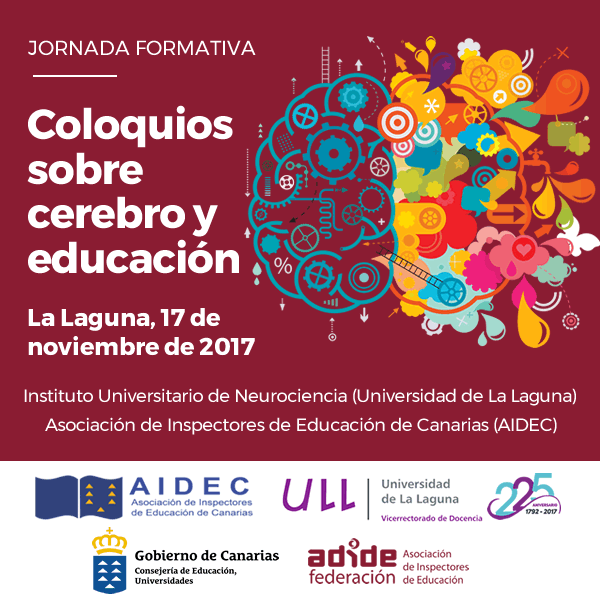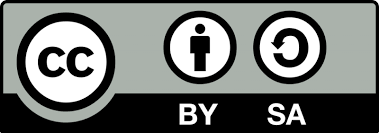Jornada formativa de la Asociación de Inspectores de Educación de Canarias: Coloquios sobre cerebro y educación
DOI:
https://doi.org/10.23824/ase.v0i28.605Descargas
Resumen
Reseña de la Jornada Formativa “Coloquios sobre cerebro y educación” que tuvo lugar el pasado 17 de noviembre de 2017 en la Facultad de Ciencias Políticas, Sociales y de la Comunicación de la Universidad de La Laguna, Tenerife.
Jornada organizada por la Asociación de Inspectores de Educación de Canarias (AIDEC) en colaboración con el Instituto Universitario de Neurociencia de la Universidad de La Laguna.
Durante la Jornada formativa se abordaron los últimos avances en neurociencia y su aplicación en el ámbito educativo con objeto de comprender mejor cómo funciona el cerebro y conocer los procesos neurocognitivos implicados en el aprendizaje.
La primera ponencia fue impartida por el Dr. Manuel de Vega, catedrático de Psicología Básica de la Universidad de La Laguna y director del Instituto Universitario de Neurociencia.
La segunda de las ponencias fue impartida por el Dr. Iván Padrón, investigador postdoctoral Agustín de Betancourt de la Universidad de La Laguna en el laboratorio de estimulación cerebral no invasiva del Instituto Universitario de Neurociencia.
Por último, se realizó una mesa redonda donde varios inspectores e inspectoras de educación debatieron sobre las aportaciones de la neurociencia a la educación actual.

Cómo citar
Número
Sección
Publicado
Palabras clave:
neurociencia, inspección, educación, jornada formativaLicencia
Derechos de autor 2017 José Manuel Cabrera Delgado

Esta obra está bajo una licencia internacional Creative Commons Atribución-CompartirIgual 4.0.

Reconocimiento-CompartirIgual CC BY-SA
Aquellos autores/as que tengan publicaciones con esta revista, aceptan los términos siguientes:
a) Los autores/as conservarán sus derechos de autor, el cuál estará simultáneamente sujeto a la Licencia de reconocimiento de Creative Commons que permite a otros re-mezclar, modificar y desarrollar sobre tu obra incluso para propósitos comerciales, siempre que te atribuyan el crédito y licencien sus nuevas obras bajo idénticos términos.
b) Los autores/as conservarán los derechos de explotación de la propiedad intelectual del presente trabajo, y en especial los derechos de reproducción, distribución, transformación en cualquiera de sus modalidades y comunicación pública de dicha obra, el cuál estará simultáneamente sujeto a la Licencia de reconocimiento de Creative Commons que permite a otros re-mezclar, modificar y desarrollar sobre tu obra incluso para propósitos comerciales, siempre que te atribuyan el crédito y licencien sus nuevas obras bajo idénticos términos.
Acceda al Resumen de la Licencia

